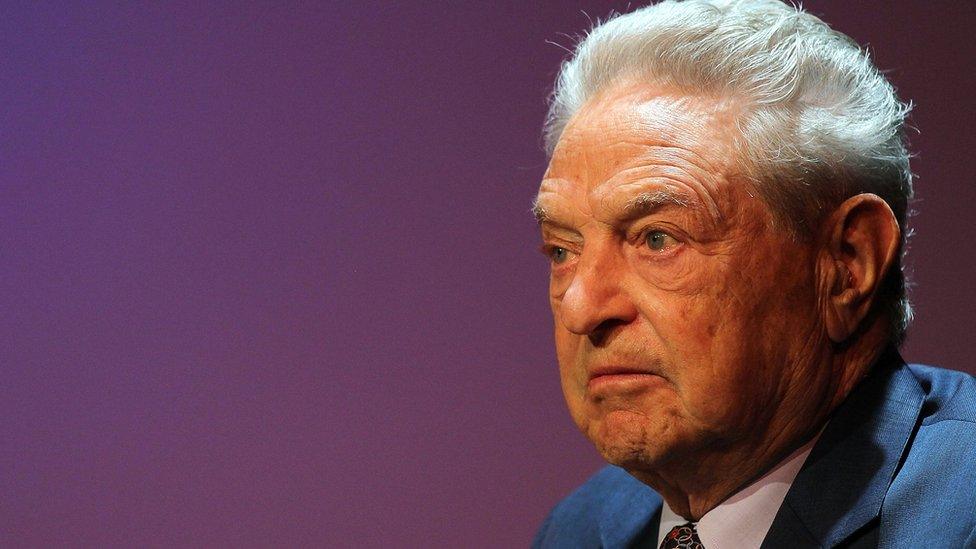Hungary vilifies financier Soros with crude poster campaign
- Published
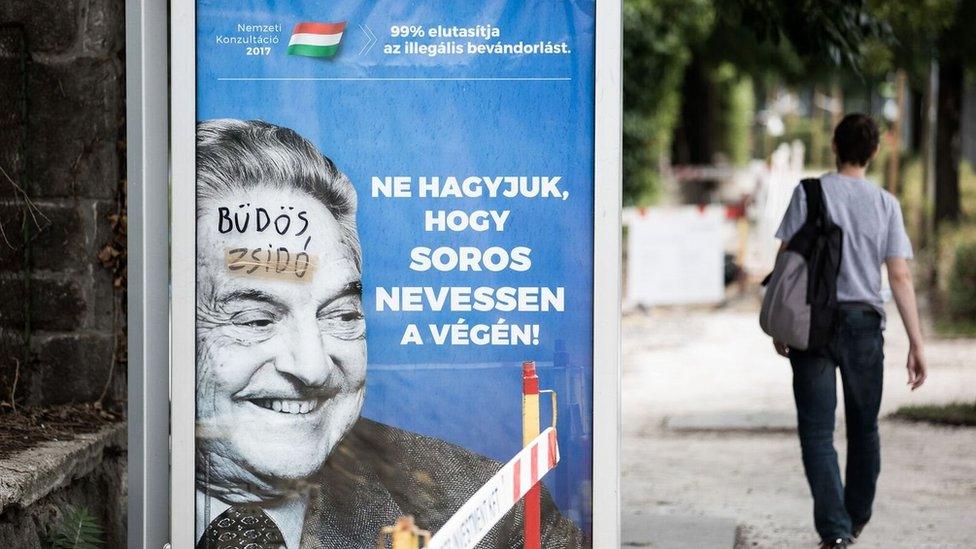
A poster showing George Soros, saying "Let's not allow Soros to have the last laugh!". Someone has written "dirty Jew" on his forehead
Giant posters vilifying the financier George Soros have gone up all over Hungary - the crudest step in the latest campaign by the rightwing Fidesz government against the 86-year-old Hungarian-born philanthropist.
Many Hungarian Jews fear that open or concealed anti-Semitism lies behind the campaign. The government strenuously denies this.
The posters show a grinning Mr Soros beside the words, "Don't let Soros have the last laugh".
In smaller letters at the top of the poster is the message, "99% reject illegal immigration."
The government has spent an estimated 5.7bn forints (€19m; £16.3m; $21m) on the campaign, which follows an earlier series of poster campaigns and "national consultations" designed to stir up public feeling against refugees.

Hungarian-born Mr Soros, pictured in June 2017, has spent $12bn on civil initiatives since the 1980s
Last year, Hungary granted protection to just 550 people, one of the lowest rates in Europe, and has refused to accept a single person from the 1,294 quota allocated by the European Commission in September 2015. With Slovakia, the Fidesz government has also taken the Commission to the European Court of Justice over the quota allocations.
The Fidesz government is also trying to close the Central European University, founded by Mr Soros in Budapest in 1992, and has passed legislation forcing non-governmental organisations to declare themselves "foreign-funded" - and therefore suspect, in the increasingly xenophobic atmosphere in Hungary.
That legislation targets Soros-funded NGOs in particular.
Why is Orban targeting Soros?
Since the mid 1980s, Mr Soros has spent $12bn, mostly through his Open Society Foundations, on civil initiatives to reduce poverty and increase transparency, and on scholarships and universities around the world, especially in Eastern Europe and the former Soviet Union.
These usually have a strong human rights component, which have made him the bogeyman of many nationalist and illiberal governments.

His civil society initiatives have made him unpopular with nationalist governments, like the one in Hungary
What appears to have irritated the Hungarian government most is a series of statements by Mr Soros over the past two years in favour of controlled immigration to Europe, the US and Canada.
In an article in the journal Foreign Policy in July 2016, external, Mr Soros suggested that Europe might accept 300,000 refugees a year directly from Turkey, Jordan and Lebanon. He also sees selected immigration as one of the solutions to labour shortages in many fields in Europe, from IT to care homes.
Like the Hungarian government, however, he emphasised that refugee resettlement and relocation programmes must be voluntary, not compulsory.
Is the campaign anti-Semitic?
The Hungarian government also stands accused of whipping up anti-Semitism with the anti-Soros posters. Mr Soros has Jewish roots, and as a nine-year-old during the Holocaust in German-occupied Hungary, he helped warn Jewish families about imminent deportations.
Many government posters have had anti-Semitic graffiti scrawled on them. The posters on the floors of Budapest trams were deliberately placed so passengers would have to tread on Mr Soros's face.
Andras Heisler, leader of the Jewish community in Hungary, personally appealed to Prime Minister Viktor Orban to end the poster campaign.
Mr Orban rejected the appeal and suggested that Hungarian Jews do more to oppose Muslim immigration to Europe.
The controversy is already overshadowing the planned visit of Israeli Prime Minister Benjamin Netanyahu to Hungary on 18 July.
Israel's ambassador to Hungary initially denounced the anti-Soros campaign, saying it "sows hatred and fear", but then Israel's foreign ministry issued its own statement critical of George Soros. According to Israeli reports, the change in tone had been ordered by Mr Netanyahu's office.
The ministry complained that the philanthropist "continuously undermines Israel's democratically elected governments by funding organisations that defame the Jewish state and seek to deny it the right to defend itself".

The government has spent an estimated 5.7bn forints (€19m; $21m) on the campaign
There is little love lost on Mr Soros's side towards Mr Orban, even though his foundation once funded a young Mr Orban's scholarship to study at Oxford University.
"I admire the courageous way Hungarians have resisted the deception and corruption of the mafia state Orban has established," Mr Soros told the European Parliament on 1 June, external, "and I am encouraged by the European institutions' energetic response to the challenges emanating from Poland and Hungary."
One small opposition party, Together, has already begun tearing down the posters in the 16th district in Budapest, and hopes to initiate similar actions elsewhere.
- Published27 June 2017
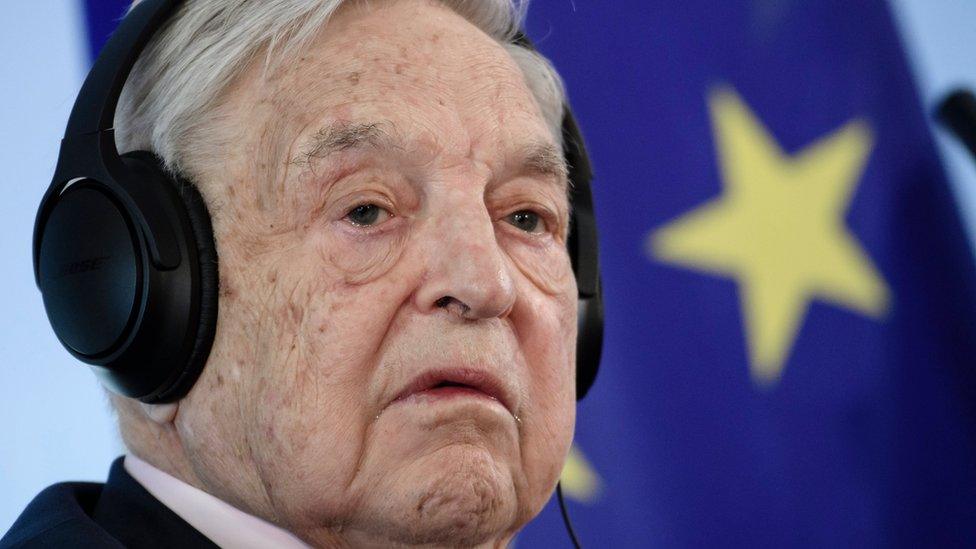
- Published22 April 2017
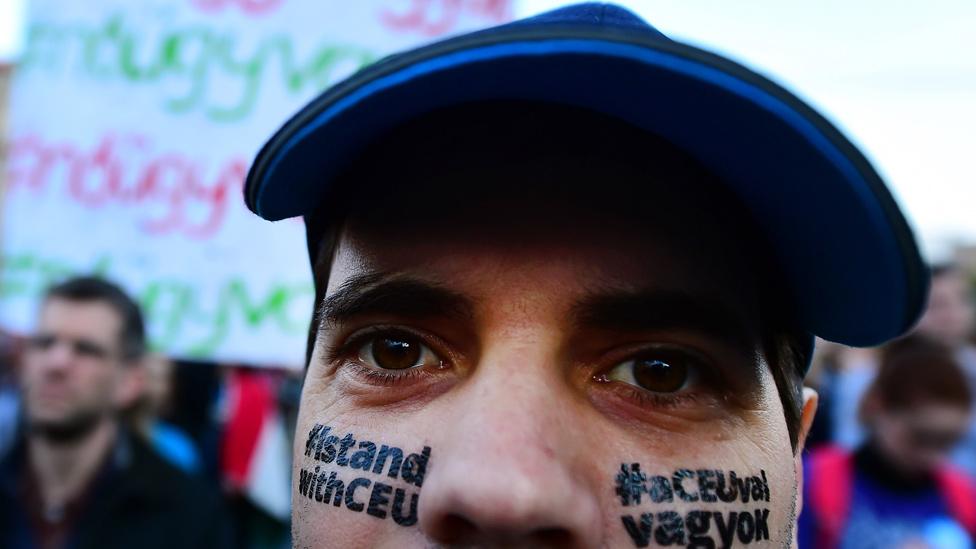
- Published10 April 2017
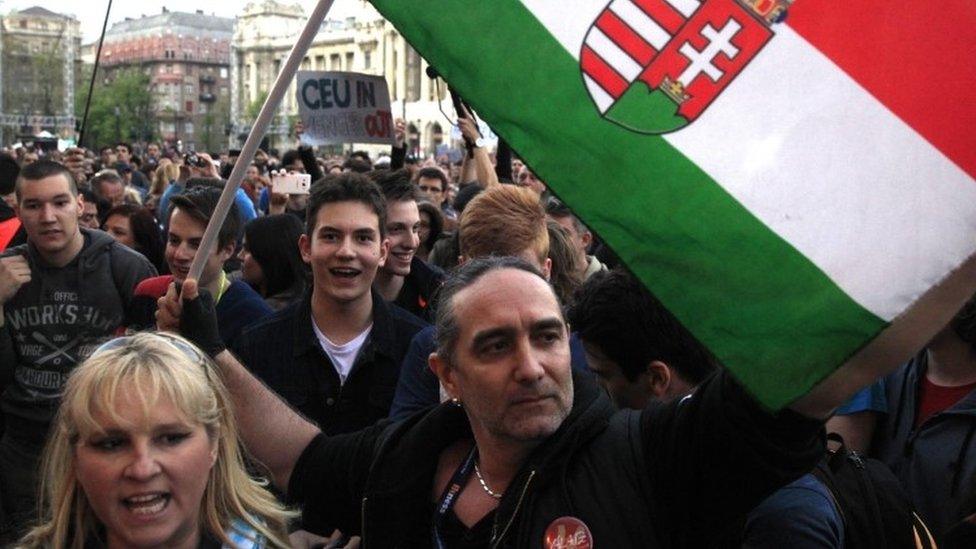
- Published4 April 2017
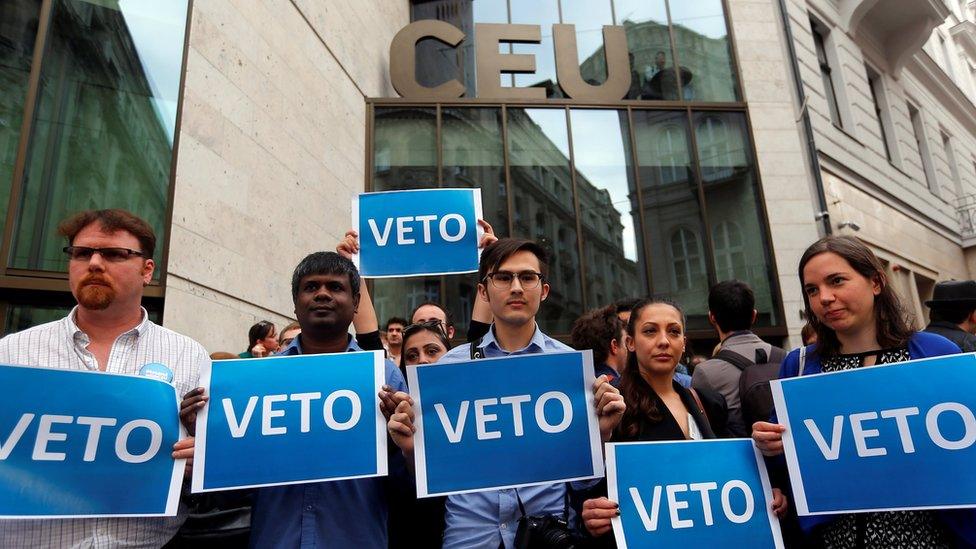
- Published12 January 2017
